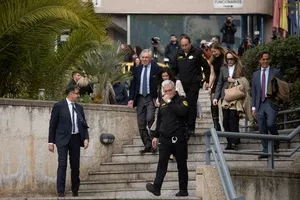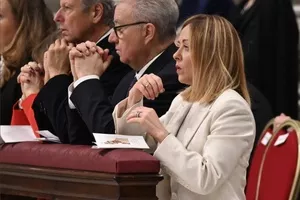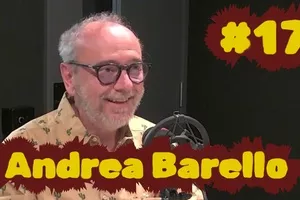Last year, the Victorian Academy of Teaching and Leadership inaugurated a new advanced program, the Teaching Excellence Program (TEP).
The objective of the program is to offer a group of selected teachers the ability to participate in an intensive course that would allow them to acquire more tools and expand their teaching capacity in class.
The 12-month course involved some of the best teachers with a minimum of three years’ experience in Victoria, two of whom teach Italian.
The entire course consisted of five days of conferences, 12 elective subjects and ten masterclasses for a combined total of 743 hours of class time.
Lectures and classes were held by guest speakers and workshops were conducted by experts, professors and researchers who illuminated cutting-edge teaching techniques.
Additionally, foreign-language specialists offered insights on neurodevelopment and second language acquisition, teaching new practices for the classroom.
Eleonora Luisetto, Head of Language Learning and an Italian and art teacher at Xavier College in Kew for 15 years, was among those selected for this first edition of TEP.
Born in Australia to Italian parents, her Venetian father and Triestine mother passed on to her the importance of languages from an early age, teaching her not only Italian but also their own dialects.
This has allowed her to build an important repertoire of expertise, which has been useful throughout her career.
Luisetto wasn’t always a teacher. She first earned a degree in the fashion industry which allowed her to travel extensively, including to Italy, thanks to her language skills.
“Sometime later I went back to school, becoming an art teacher,” she explained.
“I taught art in Italian for a few years at Xavier College, when the school offered a bilingual program.”
Now that program no longer exists, she teaches Italian and art separately to students from Prep to Year 8, still at Xavier which has since become an IB - International Baccalaureate - institution.
For Luisetto, it’s important to integrate linguistic knowledge with cultural knowledge.
“Kids need to understand the origins of a language - they can't learn it without knowing something about the country,” she said.
“So I try to always introduce aspects related to culture.
Luisetto gives a humorous example of this tactic.
“With the older classes we’ve learnt about gestures, how gesturing is natural for Italians - it’s a topic that really engaged them.
“If we can entertain them, it's easier for them to get into the language.”
Because other forms of knowledge are needed to complement language classes, Luisetto is growing vegetables and herbs with her Year 5 and 6 students so they can cook traditional Italian dishes.
“I’d like to make pizza with the kids, using tomatoes and basil from our garden,” she said.
“I’d also like to involve them in building a wood-fired oven, to integrate other subjects such as engineering and maths and make it a cross-curricular project.
“It’s a way to grow their vocabulary in other areas. We have to be innovative; kids are changing and we have to keep up.”
Luisetto believes that the education system in Victoria needs to place a stronger emphasis on learning a foreign language.
“We can see that outside our country most children know or study three languages, sometimes four.”
Luisetto said she was very lucky to have been selected for the first edition of TEP, an experience she speaks very highly of.
“During the year I had the opportunity to learn from my fellow students, teachers and professionals in the field in a way I never expected,” she revealed.
“A great added value was the network of relationships created with colleagues.”
She also mentioned that during those 12 months of advanced training, she participated in electives specifically tailored to teaching second languages.
During these electives she wrote two papers dedicated to teaching Italian in the classroom, one for Prep and the other for Years 7 through 9.
“For Prep students, I designed ‘language learning opportunities’ with the aim of increasing oral language use in the classroom,” Luisetto explained.
“Taking into consideration the time limit; I designed two 25-minute sessions per week.
“The second project was aimed at students in Years 7 through 9, where I designed learning experiences to help them with their comprehension and speaking.”
During the TEP lessons, participants were taught a range of strategies to use in the classroom.
It was then left it up to the teachers to decide which ones might be best suited to their students.
“I identified the approach that might work best for my classrooms, but it's not certain that those same strategies would be effective in another context,” admitted Luisetto.
“We’re all very excited to see how students will react to the new methods and how it will affect their learning.”
This year, Luisetto has already begun introducing concepts she picked up during her once-in-a-lifetime experience with the Victorian Academy of Teaching and Leadership.
“I'm keen to share all that I've learnt over the past year with my students,” she said.
“I'm very excited and I want my students to get excited and continue studying Italian.”
It’s a goal that, judging by Luisetto’s passion, she’ll achieve.




























